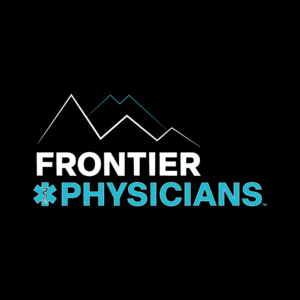Let the games begin! As you can see I’m obsessed with the Hunger Games. With the recent release of the new installment that focuses on teamwork and an eye on a higher goal, I thought I would start my letter this month with a focus on the Affordable Care Act (ACA).
I hope you all saw our video promoting this year’s annual Forum, a dynamic conference dedicated to addressing the most pressing issues faced by Colorado’s safety net. As a healthcare leader, we want you to attend and join the conversation. Next month, April 9th -11th will bring together experts from across the state to learn about the latest system topics, while also providing opportunities to share solutions. One of the sessions I’m most excited about is Healthcare Reform Realities, which will take place on Thursday morning. This general session will foster a conversation about how the ACA has stacked up against your expectations, and what we should all be anticipating in the coming months. To prepare, it might be helpful to provide a refresher on the provisions of the ACA, specifically focusing on those affecting the rural safety net.
I promise this bulletin won’t be 2,400 pages, but let’s just start at the beginning. The ACA is broken into ten sections, each addressing multiple provisions. Title I focuses on affordable healthcare with high quality. The ideology of the marketplace is detailed. From October to March 1st, our state’s marketplace, Connect for Health has connected 84,881 Coloradans with commercial health insurance. By the time of the Forum, open enrollment will be closed and we’ll be able to measure the impact of the marketplace on rural communities.
Title II describes the role of public programs. This includes Medicaid expansion. As we know, rural communities have a dense population of Medicaid eligible residents. Families living below the poverty level constitute 9.7 percent of the rural population, compared to 9.1 percent in urban areas. With Medicaid now covering up to 400 percent of the FPL, many more people will now have the ability to be insured and for care to be reimbursed. Patient navigators are also a focus under Title II. An entire breakout session at the Forum has been scheduled to address patient navigators and community health workers. In additional, many of the rural safety net clinics are owned and operated by rural hospitals, and the disproportionate share hospital (DSH), outlined in Title II might be of interest to Forum attendees. On February 28th, CMS released the 2014 DSH rates by state.
Title III covers quality and efficiency by examining value-based purchasing, the ACO model, and the patient centered medical home (PCMH). Because this month’s article is highlighting the safety net clinics, I’d like to focus my refresher around the transition to quality reporting and ultimately PCMH. I presented earlier this week at the IHI Summit on Improving Patient Care, and I’m proud to say that 17 of our 52 RHCs are participating in iCARE (Improving Communications and Readmissions) and are collecting diabetes data that shows in one year’s time a reduction of 15.5% in A1c levels. RHCs are accomplishing this work by participating as an interdisciplinary team with the CAH and RHC, attending monthly webinars to focus on sharing best practices, gaining new knowledge and leveraging resources. In Colorado we currently have two RHCs with NCQA PCMH recognition and several others are working towards certification. Click here to find out what value PCMH priorities can give your facility and attend the Forum session to learn more.
Prevention and public health encompasses Title IV, and the Forum will be covering many of the topics outlined in these provisions. Oral health and behavioral health are now hot topics, and this is especially appreciated in our rural communities. In 2012, 41 percent of rural Coloradans went without a dentist visit, and that same year, 41 percent of people over 65 who visited the dentist had tooth loss due to periodontal disease. Further, although rural citizens report a much higher level of emotional and social support (nearly 15 percent higher than urban); there are only four mental health providers per 1,000 people. Luckily, the Forum has breakout sessions dedicated to oral health initiatives in Colorado and telemedicine innovations focusing on behavioral health. The ACA is attempting to bridge the gaps between public health and clinical. How do you do this, and where has this been successful? The Forum will host a breakout session presented by a public health expert who has made this happen.
Title V is all about workforce. Unfortunately, many of the provisions, like the national commission, have yet to be funded. One victory, however, is the increase in funding for the National Health Service Corps, which provides loan repayment for clinicians wanting to practice in underserved communities. Primary care residencies were also planned to be expanded, and Colorado is taking the lead by appropriating funds to evaluate three new rural residency programs for family medicine. The Forum will have a session discussing preceptors and the need for more clinicians willing to train our future workforce.
For the sake of your attention and to pick out the most pertinent provisions related to rural healthcare, I’m going to briefly touch on Titles VI through X. Title VI, transparency and integrity address Medicaid fraud. Title VII, access to new therapies, gives direction on how to give drug purchasing discounts to the safety net. Title VIII really focuses on long-term care self-insurance options, while Title IX covers tax credits and other revenue-related material. One rural relevant topic under Title IX is the community health needs assessment. By now most all 501(c)(3) hospitals have conducted their assessment in accordance with IRS guidelines. CRHC is proud to have facilitated these in eighteen communities. Within the coming months, we will be publicizing our expansion of this process through our new data bank. Be on the watch for more information… Finally, Title X is a bit of a catch-all that discusses topics ranging from community-based care over skilled nursing facilities to additional dollars for other social programs.
Phew. With all that information to digest, I’m looking forward to Healthcare Reform Realities, and hearing your experiences. We’ll also have many stimulating speakers talking about the provisions described above. First, however, you need to register if you haven’t already. Click here for more information, and I look forward to seeing you!


